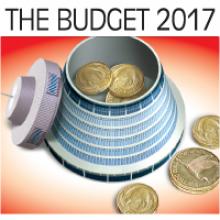
With a surplus of $1.5 billion reported for the nine months that ended in March, Mr Joyce would have weighed up the options on how to get the most value for the least amount of money.
Chances are, by this time next year, more people will pay less tax through adjustments to presently running programmes such as Working for Families (WFF) and the Independent Earner Credit.

WFF has not been adjusted for several years and the Independent Earner Credit, for those earning $48,000 or less but not qualifying for WFF, remained at $520 per year for about a decade.
Some families could earn about $60,000 before they paid any tax, if they were on WFF. Meanwhile, those who earned between $150,000 and $200,000 paid 30% of New Zealand's steadily rising tax take.
People who earned over $250,000 paid 28% of the tax take, Statistics New Zealand figures said.
Deloitte Dunedin tax partner Phil Stevenson said Budget 2017 had to be about giving people something rather than taking something off someone else.
He said it was time WFF had a caught up, as it had not significantly changed for a long time.
The option of changing WFF was more preferable for a government than changing tax thresholds, which not only benefited the lowest paid, but also the highest earners in New Zealand.
However, some inflation adjustment of the thresholds were overdue, he said.
''Bracket creep has been catching people like nurses and teachers who have moved into the top tax rate, he said.
''There may be some tinkering with that but I don't think there will be any radical new measures. The Government will use the tools it has already.''
The Government would be tempted to play the social conscience card during the Budget, a tactic which started under former prime minister John Key, Mr Stevenson said.
''National is happy to say it has a social conscience and I would be not surprised to see a bit of that.''
One thing which would not be seen was income splitting, which allowed couples with unequal income to split their tax payments to save money, he said.
The idea had been raised before but was buried.
This week, there were calls for billions of dollars to be spent on health and education, but the Government indicated that type of spending was not on its agenda. Instead, Mr Joyce was likely to signal further repayment of debt as a way of shielding New Zealand from another global financial crisis.
Westpac acting chief economist Michael Gordon said Budget 2017 was likely to be more generous than the previous offering, and not just because it was an election year.
The focus of last year's Budget was on debt control and there was a reduction in allowances for new operational and capital spending over the next four years.
''This year's Budget may also see a move towards putting more money directly into the pockets of New Zealanders, Mr Gordon said.
''The Government has long been signalling a desire to reduce personal income taxes and Finance Minister Joyce has hinted any change is more likely to be in the income thresholds, than in the tax rates themselves.''
Mr Gordon estimated updating the income thresholds for inflation since 2010, the last time income taxes were reduced, would give the average household an extra $14 per seek in after-tax income.
This would be enough to meet the Government's desire for a ''meaningful change''.
That would reduce tax income nearly $2billion in the first year.
He said an alternative would be a commitment to adjust the thresholds for inflation each year in the future.












